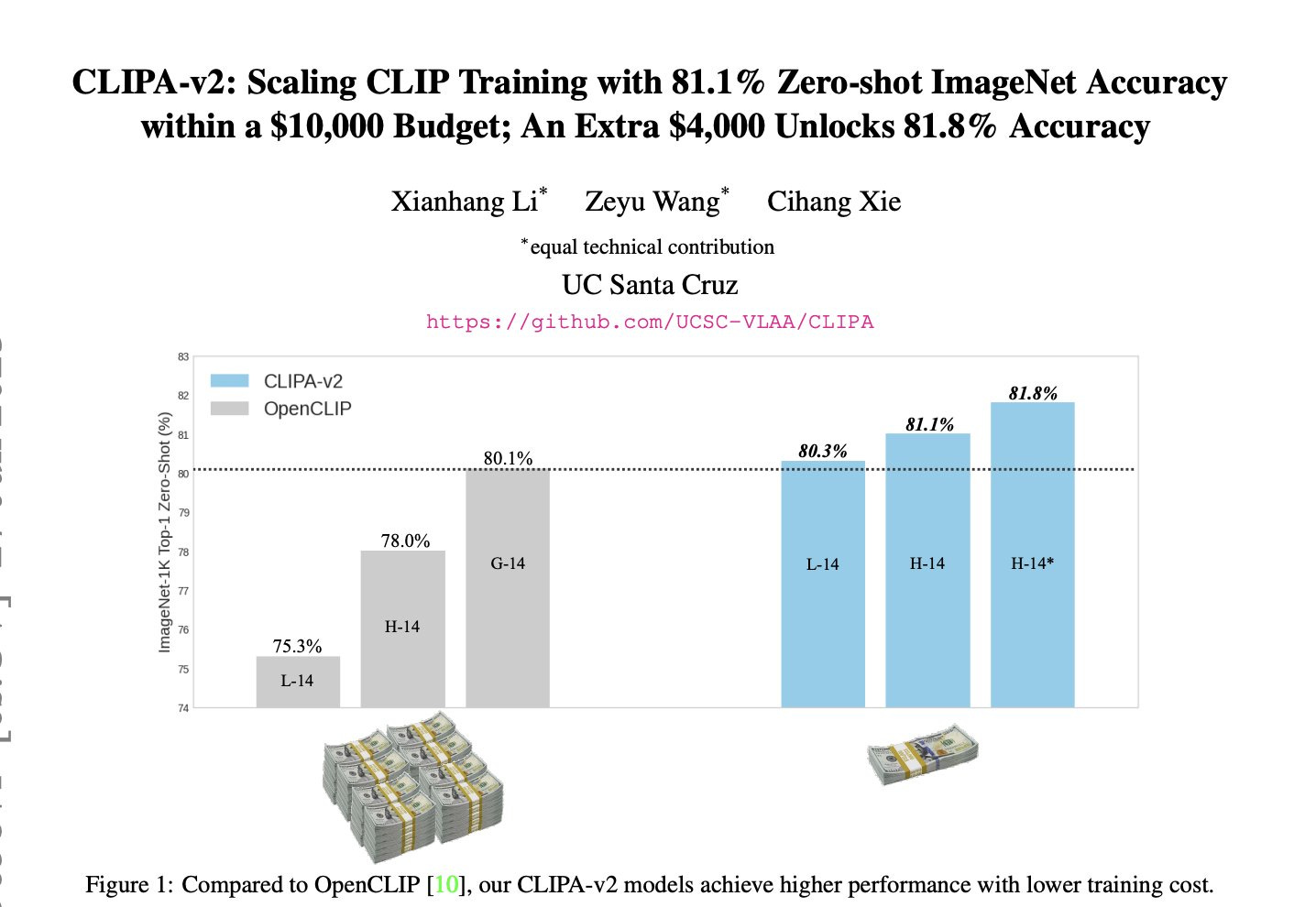AI Week in Review 23.07.01
Baidu's Ernie 3.5, faster SAM, and Unity gets AI-enabled with Muse and Sentis
About the Cover Art: Called the World’s First A.I.-Generated Statue, 'The Impossible Statue' combines the aesthetics of Michelangelo, Rodin, Käthe Kollwitz, Takamura Kotaro, and Augusta Savage. It was created recently and resides in a Swedish museum.
AI Tech and Product Releases
China AI Rises. Baidu Ernie 3.5 Emerges as Champion in Chinese Language AI: But Is It Really Better Than ChatGPT? It’s unclear if that is the case, since technical details are sparse in their Baidu news release. They claim:
ERNIE 3.5 has made significant strides in beta testing, surpassing ChatGPT (3.5) in comprehensive ability scores and outperforming GPT-4 in several Chinese language capabilities, as reported by China Science Daily.
Sourcegraph releases Cody 5.1. Cody 5.1 is an upgrade to the Cody software development AI: “suggest AI-generated auto-completions in your editor … write entire files, fix bugs, refactor code, and answer questions about your entire codebase.”
Salesforce releases XGen-7B, LLMs with 7B parameters trained on 1.5T tokens on up to 8K input sequence length. XGen achieves comparable or better results when compared with state-of-the-art open-source LLMs, on both code and text tasks, and the training cost was only $150,000 on Google Cloud using TPU-v4.
LAION announces open Flamingo V2, the release of 3B, 4B, and 9B trained OpenFlamingo open-source models. OpenFlamingo models process arbitrarily interleaved sequences of images and text to output text, to solve tasks like captioning, visual question answering, and image classification.
Unity gets AI-enabled: Introducing Unity Muse and Unity Sentis, AI-powered creativity. Muse is AI-enabled game creation, while Sentis is AI-augmentation in the game itself:
Unity Muse is an AI platform that accelerates the creation of real-time 3D applications and experiences like video games and digital twins. The eventual goal of Muse is to enable you to create almost anything in the Unity Editor using natural input such as text prompts and sketches.
Unity Sentis enables you to embed an AI model in the Unity Runtime for your game or application, enhancing gameplay and other functionality directly on end-user platforms.
Zeroscope Text-to-Video AI tool on hugging face spaces. It’s a watermark-free Modelscope-based video model. Result quality? Not good, but it will get better in newer versions.
AI Research News
CLIPA-v2: Scaling CLIP Training with 81.1% Zero-shot ImageNet Accuracy within a $10,000 Budget. Showing a way to get more with less: “the larger the image/text encoders used, the shorter the sequence length of image/text tokens that can be applied in training.” Showed graphically here, H/T AKhaliq:
A Simple and Effective Pruning Approach for Large Language Models presents an LLM pruning method called Wanda (Pruning by Weights and activations), designed to induce sparsity in pretrained LLMs to prune them for more efficient inference. This outperforms prior magnitude pruning methods.
Fast Segment Anything presents a remarkable 50X speedup on the ground-breaking segment anything model (SAM) computer vision model. The authors propose an alternative method for this fundamental task using a CNN detector, and they can achieve a comparable performance with the SAM method at 50 times higher run-time speed.
New AI Tool Beats Standard Approaches for Detecting Heart Attacks. This result uses supervised machine learning to detect patterns in ECG that match coronary events. The model can “detect subtle clues in the ECG that are difficult for clinicians to spot and improves classification of patients with chest pain.” The real benefit of a model is the speed of analysis for a patient in the emergency room with chest pain.
This Missouri U. Professor is using AI to predict a protein’s location within a cell, thus helping advance medical discoveries.
AI Business and Policy News
Something’s up at StabilityAI - Stability AI head of research resigns from startup.
Meta shares on How AI Influences What You See on Facebook and Instagram.
Wayfair CEO: AI is helping our human customer service agents ‘outperform.’ They note AI is a productivity enhancer in responding to customers: “You can use an AI model to basically take in the question from the customer, craft a response that it thinks is ideal, then show the agent a draft of the response — that agent can then change or edit it.”
Inflection AI announced that the company has raised $1.3 billion in a fresh round of funding, including Microsoft and NVidia. This massive funding infusion is being used to build the largest AI cluster in the world comprising 22,000 NVidia H100 Tensor Core GPUs. This helps the startup build out their “peronal intelligence” AI product.
Databricks has purchased MosiacML for $1.2 billion, and the merged company has the goal of ‘democratizing AI’. Today, we’re excited to announce that MosaicML has signed an agreement to join Databricks to create a leading generative AI platform.
Congress is looking closer at AI. Senators Markey and Peters urge U.S. Comproller General to assess harms of Generative AI. There are several bills being filed in Congress. There was also recent House committee hearing on AI, “Artificial Intelligence: Advancing Innovation Towards the National Interest.”
Meanwhile, 150 European companies write open letter on dangers of AI Act, arguing this regulation “could jeopardize Europe’s competitiveness and technological sovereignty.”
Newsweek goes into the nuts and bold of AI regulation.
AI Opinions and Articles
R Street argues for a pro-innovation regulatory approach to AI. “Silver-bullet solutions do not exist, and innovation-crushing bureaucracies are not the place to start.” They want to focus on outcomes of AI performance. They also quote Rep Jay Obernolte (R-CA) called “the guy you need to know about AI” shared opinions on “why AI is advancing faster than Congress” on a Politico podcast, on the innovation benefits of avoiding stifling regulation.
“Part of the brilliance of America’s technology industry over these many years is that it has been allowed to flourish in a largely unregulated environment. This has given our nation the flexibility to remain agile and on the cutting edge of modern innovation, without the interference of burdensome regulations that could have at many stages shut the industry down for good. It has catalyzed our leadership in the field over countries in Europe, Great Britain, and most of Asia,” - Rep Jay Obernolte
A Nature editorial opines “Stop talking about tomorrow’s AI doomsday when AI poses risks today.” They claim that hypothetical extinction risks are a diversion from here-and-now AI concerns and harms, such as misinformation, biased decision-making, elimination of jobs, etc.
Fearmongering narratives about existential risks are not constructive. Serious discussion about actual risks, and action to contain them, are. The sooner humanity establishes its rules of engagement with AI, the sooner we can learn to live in harmony with the technology. - Nature magazine
A Look Back …
Courtesy of RetroNewsNow on Twitter, the first use of the supermarket scanner was in 1974:
On June 26, 1974, at a supermarket in Troy, Ohio, a 10-pack of Juicy Fruit gum became the first product to be scanned and purchased using a UPC (Universal Product Code) barcode





